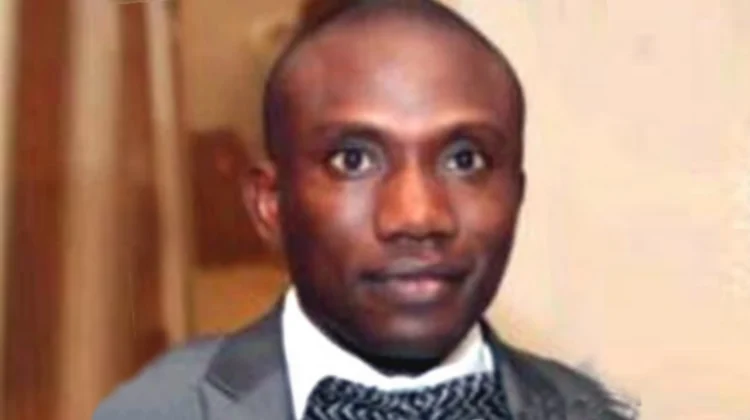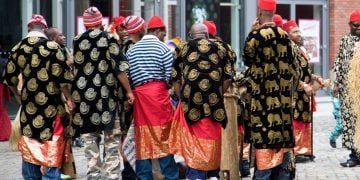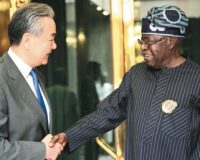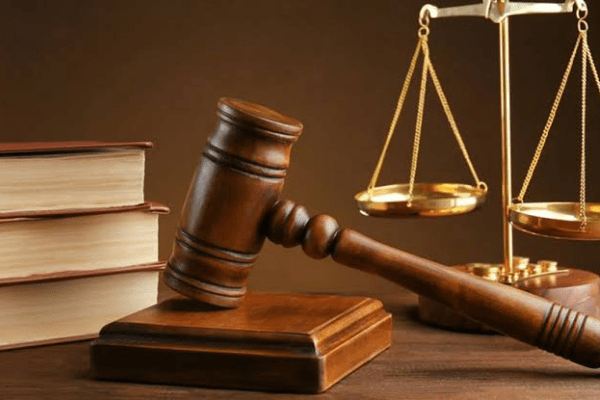By Niran Adedokun
Except for members of the All Progressives Congress, I do not understand the contestations following the APC presidential candidate, Asiwaju Bola Tinubu’s choice of a running mate.
If you do not support the APC, your discontent with the choice is enough tonic to mobilise for the defeat of this candidate, his running mate and the party that is fielding them. Members of the party can disagree with their candidate, raise hell if they like, and even walk out of the party on the strength of what they may consider as trampling on their rights. Democracy is a festival of ideas where everyone should have the freedom of choice.
So, Christians and Muslims in the APC, who can’t stand the idea of a one-faith presidential ticket because it seems unfair, have every right to vent or even leave the party because it goes against their beliefs. But anyone without affiliations to the APC should seize the opportunity to explore any of the other options that the 2023 elections present. This is the very essence of democracy, and something that Nigerians should imbibe if we truly desire democratic governance.
Is there really anywhere in the world where politicians make electoral decisions just for the sake of equity? Whenever their choices seem just and fair, rest assured that they arrive at such decisions because the courses of equity and impelling desire to win elections align at some juncture. Nothing goes for nothing with those who play politics.
Religion and ethnicity, which should unify, have become the major albatrosses holding Nigeria back lately. It is not out of place for citizens to expect politicians to be sensitive to their sentiments, which is why one was shocked with the casual way Tinubu put the name of his running mate forward over the weekend.
Reputed to be a renowned political strategist and tactician, one expected more tact in the handling of this matter. For instance, unveiling Shettima in a gathering of respected political actors like supportive APC chieftains and Christian opinion molders and voices, would have been a more respectful way to approach the matter than the arrogant, “those who don’t like it can go to hell,” amateurish announcement at Daura. These politicians must learn that strategic communication promotes trust and calms tempers, but what do I know? That said, however, Nigerians also need to know that politicians only care about interests that give them the advantage, especially when it concerns winning elections.
Three considerations are paramount in choosing a running mate, especially in a country like Nigeria where those voted into executive offices like to be totalitarian.
The most important factor would be the electoral value of the person under consideration. From what we hear, the average northern Muslim doesn’t have serious regard for the faithful from the South. As a result, it is probably only southerners who see Tinubu as a Muslim, and that he is bound to detract from his prospects in the North if he selected a Christian as his vice since most of the votes in the North presumably come from Muslim dominated areas. With Senator Kashim Shettima as running mate, Tinubu takes away that handicap. He brightens his chances with someone seen as a “true” faithful.
The choice of Shettima from the North-East is also strategic because it eliminates the likelihood that the electorate in that part of the country would vote en masse for the candidate of the Peoples Democratic Party, Alhaji Abubakar Atiku. By picking a former governor and chair of the Northern Governors Forum, the APC is sure to eat into Atiku’s votes in the North-East and affect his chances.
The second consideration of a Nigerian politician would be the person who is most likely to remain loyal and not turn against him. This is more so with Tinubu, whose governorship history in Lagos State is of broken-down relationships, which ended in the impeachment of the two deputies he had in eight years. Such a man will no doubt prefer someone who would not undermine him. Unfortunately, there are no real guarantees as to the wonder that power does in the transformation of otherwise pliable people. Most often than not, these permutations blow off in the faces of those making them, but they at least give the chief executive some tentative sense of security. If Tinubu wins the presidential election, it remains to be seen how his relationship with Shettima, who is not a pushover, pans out.
Third, the candidate will consider how compatible he is with a prospective running mate. Expectedly, any of those hoping to govern Nigeria from 2023 is a visionary. His choice of a vice must be someone who shares his ideals and ideas about moving the country forward. In the relationship between Tinubu and his running mate, time will tell how and where their visions for national reformation merge. For years until recently, Tinubu was vociferous about the need for the political restructuring of Nigeria as a panacea for development. But the man Tinubu is running with has never hidden his disdain for that conversation on political restructuring. Therefore, It will be interesting to see how the two work together on this and other issues if Nigerians choose to vote them in as President and Vice President. Anyhow it goes, it is the democratic right of the candidates to work together.
It is the same way that it is the right of Nigerians to reject their candidacy for whatever reason. Unless those angry at Tinubu’s choice have concluded that the APC will win the 2023 elections, the current hullabaloo about the party’s vice presidential candidate is unnecessary and counterproductive. One understands the sentiment about the power of incumbency and how ruling parties hardly lose elections, but things changed in Nigeria since 2015, when the APC won the general elections despite the PDP’s incumbency. Who says this can’t happen again?
Rather than issuing threats and heating the already tense polity, those who disagree with Tinubu’s choice, or the choice of any other politician should roll up their sleeves and set about the job of mobilising Nigerians to, once again, show politicians that power belongs to the people.
All said and done, one must, however, wonder how much of an impact religion has on our lives as a people. If those who lead Nigeria were truly loyal to any religion, the level of poverty, ignorance, hate and violence reigning across the country would not be there. Politicians only use religion as a ladder to the places they aspire to go. Once they get there, they unite in the exploitation of the people. This is the main reason Nigerians must now take their destinies into their own hands and exercise their democratic rights to determine the future.
Twitter@niranadedokun







